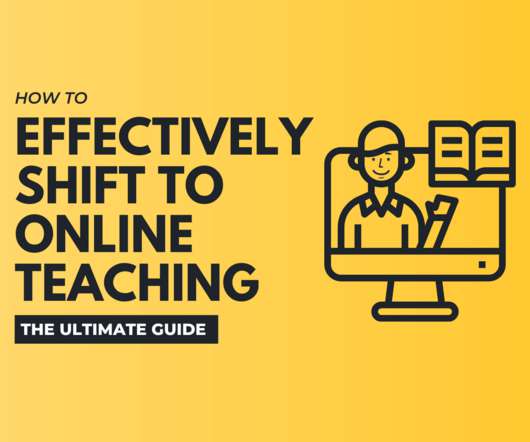How The 8 Effects of Arts Education Are Changing Online Pedagogy, Part 2
Kadenze
APRIL 8, 2019
s Director of Business Development, to discuss the distinctive effects arts-led learning is having on online learning design. Here he introduces the fictional-reality effect and the reflection effect. The Fictional-Reality Effect. The Fictional-Reality Effect. The Reflection Effect. You can read Part 1 here.


























Let's personalize your content